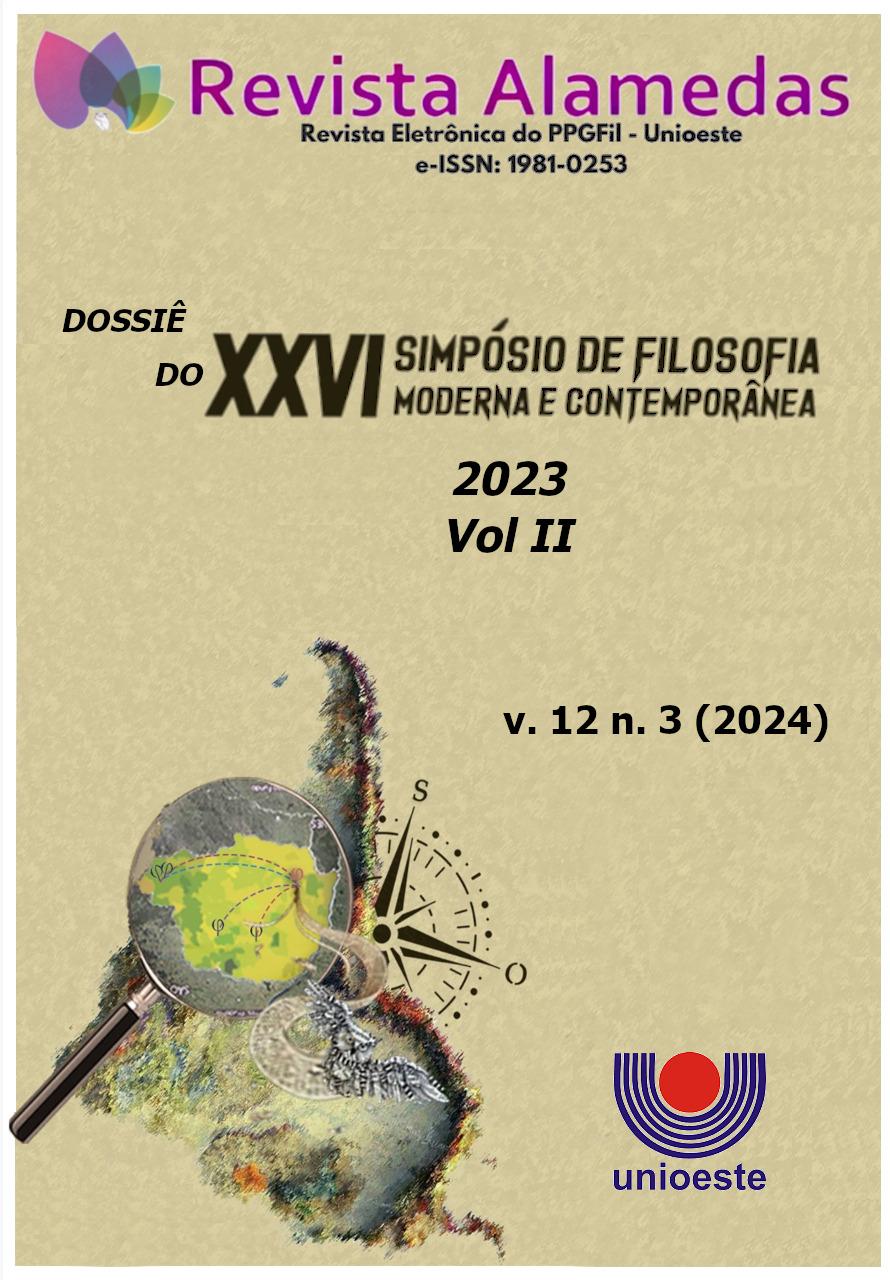Entre a filosofia e a poética
os sentidos do corpo em Nietzsche e Fernando Pessoa
DOI:
https://doi.org/10.48075/ra.v12i3.33077Palavras-chave:
Nietzsche, Fernando Pessoa, Poesia, Filosofia, CorpoResumo
Nietzsche utiliza elementos poéticos em seus escritos filosóficos, por acreditar que o corpo é um elemento fundamental no processo de afirmação da vida e da superação dos limites existenciais. Enxerga o corpo como um instrumento potente, que deve ser cultivado e aprimorado para a busca da elevação e da realização plena. Por valorizar a expressão livre e autêntica dos impulsos e instintos corporais como forma de afirmar a individualidade e a vitalidade do ser humano, Nietzsche enxerga o corpo como um instrumento chave para a afirmação da vida, tanto mais quanto à razão. Essa compreensão do corpo se dá pelas definições de autocuidado e afeto, entendidos como a capacidade dos corpos de influenciar e ser afetado por outros corpos. É possível destacar algumas concepções alternativas e críticas em Nietzsche em relação ao seu entendimento de corpo afetivo como multiplicidade de potência, e como o filósofo percebe a influência da moralidade sobre os corpos, uma vez que entende que o corpo é uma fonte primordial de valores, impulsos, desejos e instintos que lutam constantemente para aumentar seu quantum de força, subordinando outros conjuntos afetivos. Já para Fernando Pessoa, a perspectiva em relação ao corpo é mais complexa e fragmentada. Em seus heterônimos, Pessoa interpreta o corpo como um território de múltiplas identidades e sentimentos. Cada heterônimo possui sua própria relação com o corpo, suas particularidades físicas, psicológicas e existenciais; e Pessoa explora essa questão através de questionamentos sobre a existência e da busca por uma identidade verdadeira. Em suma, o objetivo desta comunicação é entender as diferentes expressões poético-filosóficas desses pensadores e a concepção de realidade efetiva, sensível e transgressora como um processo de transformação e reavaliação, em que não atribuir ao corpo uma compreensão puramente racional é uma ruptura com a metafísica tradicional, para em seguida compararmos as suas semelhanças e como ambos oferecem visões interessantes e provocativas para uma nova ordem na investigação poético-filosófica, principalmente naquilo que concerne à abordagem sobre o corpo.
Downloads
Publicado
Como Citar
Edição
Seção
Licença
Copyright (c) 2024 Alamedas

Este trabalho está licenciado sob uma licença Creative Commons Attribution-NonCommercial-ShareAlike 4.0 International License.
Aviso de Direito Autoral Creative Commons
Política para Periódicos de Acesso Livre
Autores que publicam nesta revista concordam com os seguintes termos:
1. Autores mantém os direitos autorais e concedem à revista o direito de primeira publicação, com o trabalho simultaneamente licenciado sob a Licença Creative Commons Attribution que permite o compartilhamento do trabalho com reconhecimento da autoria e publicação inicial nesta revista.2. Autores têm autorização para assumir contratos adicionais separadamente, para distribuição não-exclusiva da versão do trabalho publicada nesta revista (ex.: publicar em repositório institucional ou como capítulo de livro), com reconhecimento de autoria e publicação inicial nesta revista.
3. Autores têm permissão e são estimulados a publicar e distribuir seu trabalho online (ex.: em repositórios institucionais ou na sua página pessoal) a qualquer ponto antes ou durante o processo editorial, já que isso pode gerar alterações produtivas, bem como aumentar o impacto e a citação do trabalho publicado (Veja O Efeito do Acesso Livre).
Licença Creative Commons
Esta obra está licenciada com uma Licença Creative Commons Atribuição-NãoComercial-CompartilhaIgual 4.0 Internacional, o que permite compartilhar, copiar, distribuir, exibir, reproduzir, a totalidade ou partes desde que não tenha objetivo comercial e sejam citados os autores e a fonte.


